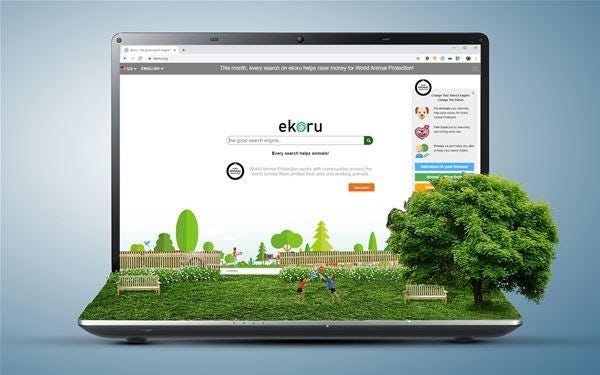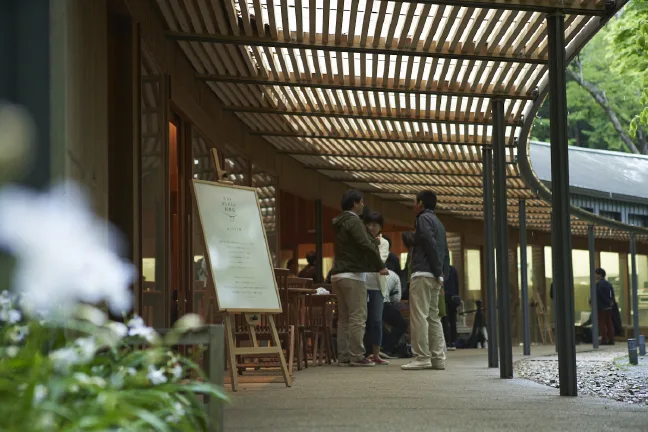Drop the bot! Stay Human & Bond
January 22, 2020Next on our plates: The Amazon Rainforest!
January 28, 2020A story by Luca Fischer
We live in a Knowledge Society, where we are improving our human condition by consuming data and information regarding culture, politics and entertainment. We carry the knowledge of the world in our jean pockets and it’s also easily accessible on our fingertips all the time. Looking up information on our phones, computers and tablets has become common and natural… Almost like a new Next Nature? I already wrote an article featuring the Pyramid of Technology by Next Nature Network, addressing the future of sexual behavior. This time, let’s place search engines in this pyramid: even though we still have access to physical books in our homes and public libraries, accessing the broad encyclopedia that is the Internet has been hard to live without for the last decade. And companies are loving it.
Let’s explore: how will our attitude change towards search engines in this coming decade?
Green pressure
Green pressure, where consumers move from eco-status to eco-shame, will grow in 2020. Not participating in living more eco-friendly and sustainable in order to decrease your carbon footprint will be something to be ashamed of, according to trendwatching.com
The political party you vote for, your energy supplier and the amount of plane trips you take are three of the biggest changes an individual can make to contribute to the viability of our planet, according to journalist Jelmer Mommers. But as you know, change doesn’t come without friction, and people are not very prone to change in general. For many, small steps towards the right direction are the way to go, like using a stainless-steel straw instead of a plastic one. Switching to a green(er) search engine, like Ecosia and Ekoru could also be an option. While the first one has been birthed ten years ago, the latter has been launched just over a month ago. Both of them vouch for the same problem: the large amount of carbon dioxide that is being produced when searching for information is problematic.
Every second, Google produces about 500kg of carbon dioxide, according to recent estimates. According to founder of Ekoru, Ati Bakush, the goal of the search engine is not to make large profits like Google and Yahoo. Instead, 60 percent of revenue streams go to partners that are engaged in ocean cleanups.
Truly green, or greenwashing?
Ecosia doesn’t help with cleaning the ocean. Instead, it plants trees by donating a percentage of their revenue streams to specialized organizations. The more searches, the more trees that will be planted, contributing to — literally — a greener planet. But how green is it really?

This search engine has been around for an entire decade. During those years, it received a lot of backlash, stating that Ecosia is actually less eco-friendly than regular engines. The pollution of search engines is caused by their servers and power-hungry air conditioning. Ekoru keeps pollution small by using hydroelectricity and water cooling on their own servers, while Ecosia uses a proxy, which is basically a middleman. This back-end server goes through Bing that runs on non-renewable sources. So while Ecosia does plant trees unlike Google or Yahoo, this amount does not compensate the amount of carbon-dioxide that one wastes on a search.
It is still unsure which search engine is the greenest of them all, but some unfortunately are a victim of greenwashing, where companies are doing their best to appear more eco-friendly and sustainable than they actually are.
Privacy
Greenwashing doesn’t stand without a critic for a consumer on the other side. Users expect more transparency from companies, search engines included. The vast increase of data creation perhaps makes you wonder from time to time: where does this (i.e. ‘my’) data go? As many people know, Facebook can’t be a free-for-all service without handing in (some of) that data. Though the medium is used by 2.2 billion people, more are on Google, and consulting a search engine is becoming more and more indispensable, even required to do in many cases. But users want to protect those things they have put on the internet, even if they have nothing to hide at all. The Dutch Privacy Award of 2019 was won by Startpage, a privacy-friendly search engine. Having to birth such a thing as a privacy award does indicate how our data is often used in the wrong ways by organizations.
The big downside of these more curated engines, is the lack of information it contains. Just like Wikipedia in their early days, the public has to contribute data in order for it to grow. As long as Google is the quarterback of the game, more anon-players don’t stand a chance in the game of data creation.
One of this year’s nominees of the award show is Publicroam, a free and safe WiFi for people to use in public. Perhaps an important issue to discuss with the arrival of 5G Internet and its challenges to launch in Europe and North America. This year’s winner will be announced at the end of January.

Your future of search engine use
Perhaps the reason why we don’t often question our relationship with search engines, is because we just can’t do without anymore. A new decade has arrived, will you switch your trusted Google in order to have more privacy, a smaller eco-footprint or less distraction? Or do you think it truly won’t make that much of difference? For some, Startpage could make you feel more safe, Ekoru could make you feel like you’re making a difference. That sense of responsibility and control is also worth something, and perhaps just that nod in the right direction.
To my opinion, true transparency is what the consumer wishes from companies this coming decade. But in many cases, our journey for genuine information starts at a search engine. Unless WiFi comes to a fall come 2020, I do not predict going back to physical books and newspapers. And yes, I have used multiple ones to do my research for this article 😉
How do you feel about using greener, smarter and safer search engines?
This is a story of the Futurist Club
By Science of the Time
Written by: Luca Fischer

Luca (22) recently graduated from Trend Research and Concept Creation in Lifestyle, where she wrote her thesis about intimacy among mentally impaired youth, and how technology can improve their quality of life by adding it to this basic human instinct. Her conceptual ideas and speculative future gaze is substantiated with a philosophical and ethical framework: “When looking at multiple futures, it’s not just about confirming a direction, but also about the provoking question — what it will mean for a culture, sector or lifestyle — and how ethically correct that future is going to be.” Currently, she works as a freelance allround creator and lives in Tilburg. A few of her former projects include a function as visual direction for start-up lifestyle brand PureSan, and a function as editor-in-chief of a local lifestyle magazine.



